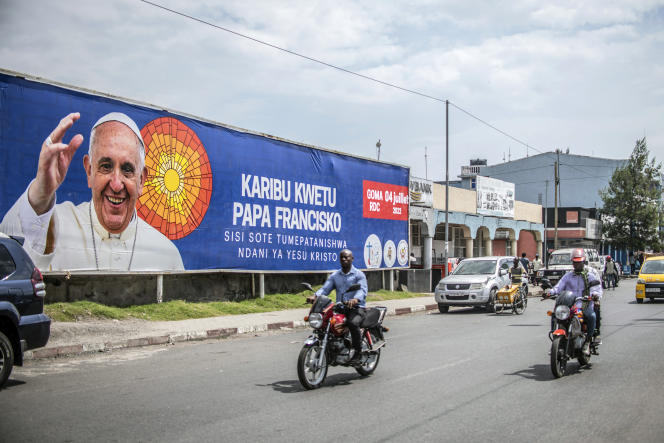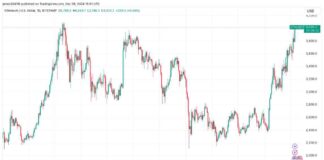The Vatican announced, Friday, June 10 in the middle of the day, the postponement “to a later date which remains to be defined” of the trip that Pope Francis was to make to the Democratic Republic of Congo (DRC) and South Sudan, from 2 to July 7. The pontiff acceded to “the request of his doctors, so as not to compromise the results of the knee therapies still in progress”, specifies the brief statement published by the director of the press room, Matteo Bruni. This unusual decision raises questions about the state of health of Jorge Mario Bergoglio, now 85 years old.
The Holy See had already postponed the visit initially scheduled for mid-June to Lebanon. But this first adjustment to the pontiff’s schedule had been made earlier, before the Vatican officially announced the trip program. This time it is different: the details of his stay in Kinshasa, Goma and Juba had been made public and the accreditation procedure for journalists had been completed.
Africa ‘victim’ of ‘exploitation by other powers’
The pope was keen on this trip to a continent he only discovered after his election in 2013, in an Africa he considers “a martyrdom”, “a victim” of “exploitation by other powers”. In the DRC as in South Sudan, he wanted to support political “reconciliation” processes, after years of civil wars. The statement suggests that his doctors left him with little choice. He says nothing, however, of the trip to Canada scheduled for July 24-30, during which the pope is expected to renew his apologies for the violence perpetrated for decades in Catholic boarding schools for indigenous people.
This impediment to walk is in addition to the consequences of a major colon operation undergone a year ago, officially due to diverticulitis. Even before that, the pope had admitted that traveling tired him out more than before. After two years without travel, due to the Covid-19 pandemic, he had spontaneously declared, on returning from Iraq, in March 2021: “I admit that during this trip, I was much more tired than during the others. 84 [years] does not happen by itself! »
Questions about the continuation of the pontificate
The abrupt decision to postpone the visit to the DRC and South Sudan indefinitely can only heighten questions about the future of the pontificate. Pope Francis has always said that he does not rule out giving up his office if he is no longer able to fulfill it satisfactorily. He bases this on the example of his predecessor, Benedict XVI, who, according to him, introduced a lasting possibility by renouncing his pontificate on February 11, 2013.
Faced with his opponents and all those who now await the next pontificate, the Argentine pope’s room for maneuver risks being affected by this forced admission of weakening. Even as a process of reflection on synodality (the mode of governance in the Catholic Church), at the heart of Francis’ reforms, is entering its final phase, with the holding of a synod of bishops planned for Rome in fall 2023.

















